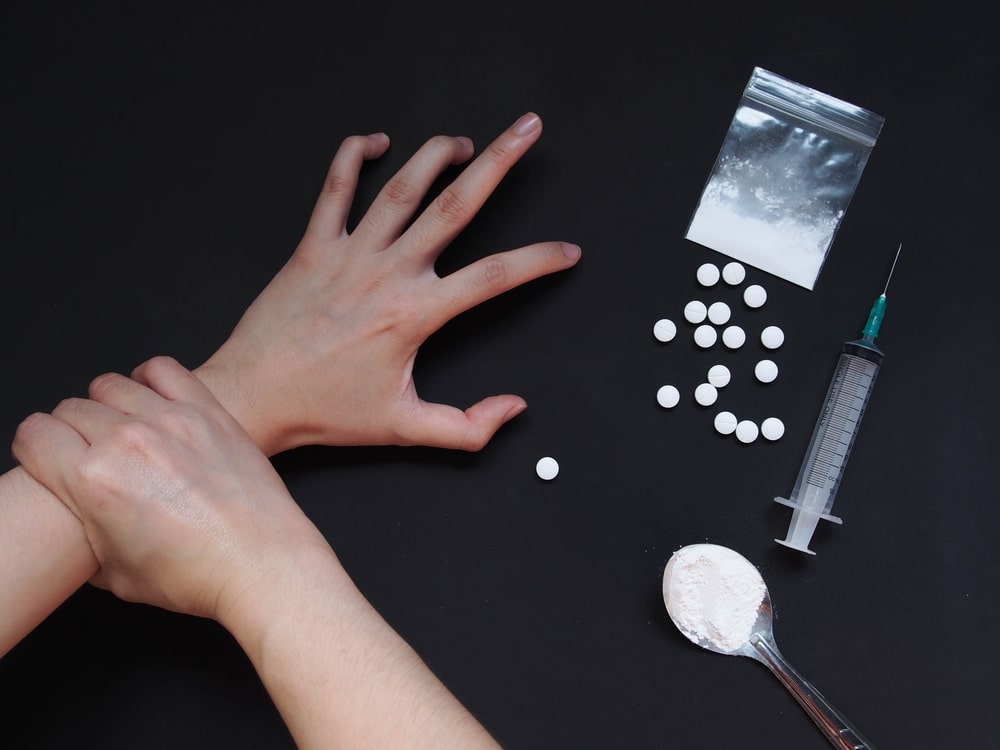The Difference Between Substance Misuse and Addiction
If you recognize that you have a problem and are motivated to change, a natural recovery can work. But it depends on the nature of your substance abuse.
You can misuse substances during stressful times. But if you feel physically and psychologically dependent on alcohol or drugs to get through your day, this is a substance use disorder (SUD). Addiction suggests a lack of control and a compulsive desire to use. If this is the case, then practicing restraint outside of a rehab setting can feel almost impossible.
Withdrawal Symptoms
Quitting without professional help is made even more difficult by the withdrawal symptoms that occur after stopping use. Withdrawal from drugs such as cocaine, marijuana and crystal meth is uncomfortable but not lethal.
With drugs like opioids, benzos, GHB, inhalants and alcohol, withdrawal symptoms are severe and sometimes fatal. They require supervision and detoxing in a medical setting. Weaning yourself off substances is a process that should not be taken lightly. Tapering doses without a doctor’s approval can be dangerous.
Factors That Affect Your Ability to Stop Substance Abuse Without Rehab:
Choice of Primary Drug
As mentioned above, withdrawal symptoms differ depending on the type of drug. Weed is not as addictive as heroin, for example. So if your pot consumption is excessive, you could realistically quit or reduce your intake without treatment.
But quitting drinking and benzos “cold turkey” can kill you. Rehabs offer safe detoxes where medication can reduce discomfort. A medical setting is also optimal if multiple substances are at play.
Duration of Use
If you’re a long-term user, quitting without professional help can be a challenge. This is true even if the drug is weed. With many substances, people develop tolerance and this leads to dependence.
Underlying Cause of Misuse
You can go it alone and abstain. But if the issues that led to substance misuse persist, recovery will probably be unsustainable. In some instances, an addiction to one substance is replaced with an addiction to a different drug. This is why therapy is such a central part of treatment.
Family History of Addiction
Substance abuse runs in families. People can be genetically wired to be prone to addiction. But that doesn’t mean you don’t have the ability to change.
If substances are free-flowing in your home environment, that’s clearly not conducive to sobriety. If you’re able to find alternate housing that is more stable, you may be able to stop drug addiction without rehab.
The Self-Help Approach
Self-help can be a viable path to recovery. Many Vietnam war veterans were able to quit narcotics without treatment. And aging out of drug use is not uncommon.
Quitting takes effort but the following can help:
- If you go the self-help route, a supportive social network coupled with support group meetings and a sponsor can be key to progress. You can also find a community online while retaining your privacy. Loved ones can offer practical help and hold you accountable.
- Set achievable and measurable goals for yourself and envision improved relationships. Take up a hobby.
- Do research about your drug of choice and create conditions that aid abstinence. If your time is unstructured, create a routine. Avoid places, habits and triggers that bring on cravings. Stop carrying cash and you will make it more difficult to access drugs.
- Cut out friends or family members who influence you to use. It might seem harsh but if your SUD could harm others or threaten your own life and health, this is a necessary step.
- Have a strategy to self-soothe when you are anxious. Cuddle a pet or do a workout. Exercise releases endorphins which makes it a great way to boost your mood while taking your mind off a trigger. But if exercise is not your thing, cooking a healthy meal or using an addiction recovery app can do the trick. Find what works for you and keep at it.
- If you make a mistake, don’t give up. Recovery is not possible without resilience. Speak to your sponsor and consider what went wrong. It’s essential to remember that abstinence lowers your tolerance and a relapse can mean a lethal overdose!
What To Do If You Veer Off The Path
If going solo isn’t working but you feel your SUD is not bad enough to require residential treatment, your GP may refer you to outpatient treatment. This option includes formal counseling. If you’re diagnosed with a co-occurring disorder, medication combined with therapy can turn things around. Outpatient treatment also allows you to continue working and having a sense of normalcy.
If you find that you are still seeking or using drugs while receiving outpatient treatment, it’s time to consider more intensive inpatient services. Even a month of residential rehab can make a big difference to your recovery.
Whatever you do, don’t let the cost of rehab prevent you from getting treatment. There are many ways to fund rehab. Addiction is thought of as a disease. With interventions, diseases can be managed and even cured.
And if the stigma of residential rehab is holding you back, consider the regrettable situations your SUD has already caused and will continue to cause if untreated. There is no shame in trying to make a positive change. You have value and untold potential.
If you or someone you know is struggling with severe addiction, there is hope. We highly recommend seeking treatment. Health professionals can assist you to become drug-free quicker than if you attempt quitting alone.
Source
- Opioids aren’t the most dangerous drug to go through withdrawal from. (2016, May 7).
- Can You Cure Yourself of Drug Addiction? (2011, March 4).
- Ageing out of drugs (2016, August 22).
- How I kicked drugs without going into rehab (2016, August 15).
- Natural recoverers kick addiction without help (2015, October 29).

